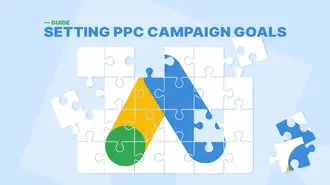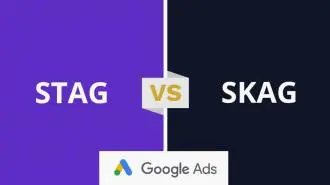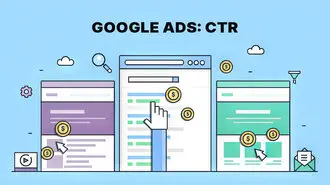Summary / TL;DR
Google Ads bidding strategies directly influence campaign performance, shaping conversions, click-through rates, and return on investment. There are several bidding types, including automated strategies like Target CPA, Maximise Conversions, Target ROAS, and manual CPC. Each strategy serves different goals such as driving website traffic, increasing visibility, or boosting conversions. Effective bidding requires analysing factors like device usage, keyword performance, peak traffic times, and quality score. Tools like the bid simulator, Google Analytics, and the Keyword Planner assist in refining strategy. Google's bidding algorithm adapts over time using conversion data and contextual signals to optimise ad placement. Success depends on regular adjustments, clear campaign objectives, and understanding cost targets for each desired action.
Struggling to capture user attention and achieve the ROI you're aiming for with your Google Ads campaign?
While you can change the website and campaign, you must rethink the bidding strategy. Your Google Ads bidding strategy determines the ROI, sales, and the number of people who respond to the ads.
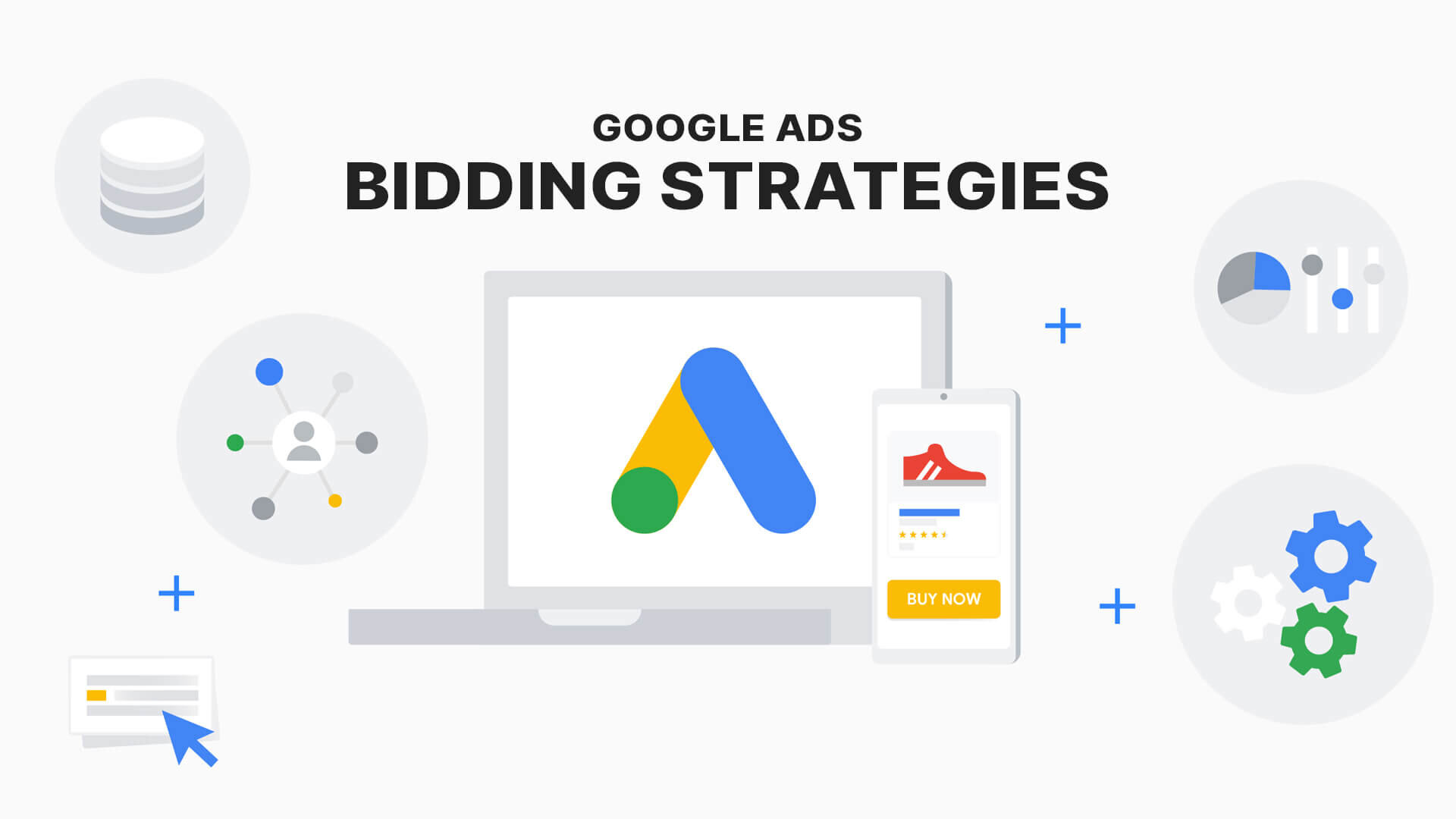
You can choose from several bid strategies, including manual or automated bidding. To help you, we have listed the major Google Ads bidding types, provided important tips, and answered some common questions.
Read this guide to enhance brand value by pushing the ads higher up the search results page. Managing bidding strategies effectively requires expertise and ongoing optimization—our Google Ads management services handle bid testing, budget optimization, and conversion tracking to maximize your campaign ROI.
Ad Bidding Optimisation
For your Google Ads bidding strategies to succeed, optimising the bids by evaluating them is essential. After the Google Ads have been running for a while, it is best to check the bid strategy to see how they perform.
For instance, if you want to increase sales and drive more traffic to the website, try to answer the following questions for Google Ad bidding optimisation:
- Where are your consumers searching from?
- What devices are they using?
- Which keywords are the most clickable on Google Ads?
- What are the peak times for the business?
- What are the best days for the business?
Some other steps you can implement for smart bidding strategies include:
1. Evaluating The Revenue And Costs
Understanding how effectively your Google Ads bidding strategy works hinges on knowing how frequently people click after seeing your ads. Consider organising keywords by clickthrough rate to identify which ones garner impressions but lack clicks.
To maximise conversion value and sales, Google allows you to edit the bids using keywords. To do this, you can set up conversion tracking to know if the clicks translate to sales. This helps determine the success of a Google Ads campaign by showing whether people signed up for the newsletter or purchased the product. Hence, you can calculate the return on investment.
Another tool you can use is ‘Maximise Clicks’ to fix a budget, which will adjust the cost-per-click bid strategies so you receive maximum clicks within the entire budget. You can also use automated bidding strategies to achieve particular goals and tweak the campaigns when needed.
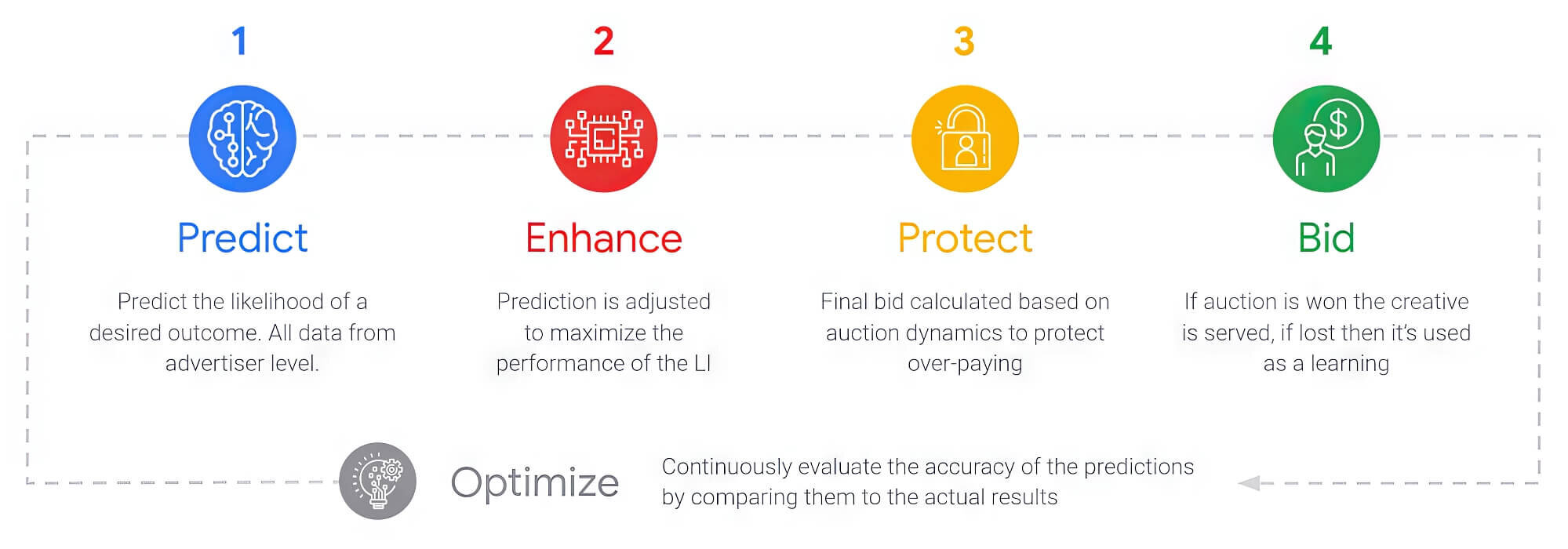
2. Adjusting The Bid Strategy
Changing the bidding strategy would be ideal for greater ROI, so once you know about the location, devices, keywords and time, make sure to consider the following factors:
A. High CPC, Low Conversion Rate
You can lower the maximum CPC bid when a keyword has a high average cost-per-click rate but low conversions. This increases the chances of a higher ROI for the bid strategy’s success, ensuring you only invest a little in low-performing keywords and use that money on more important ones.
B. Low CPC, High Conversion Rate
In such instances, you can increase the maximum CPC bid limit since the conversion rate is high despite the low cost-per-click rate.
C. Low Traffic
If, during certain hours of the day, you find that traffic to the website is dropping, employ smart bidding strategies by increasing the bids in areas where you’re performing well. An interesting tactic is using promotional campaigns with Google Ads to engage more people.
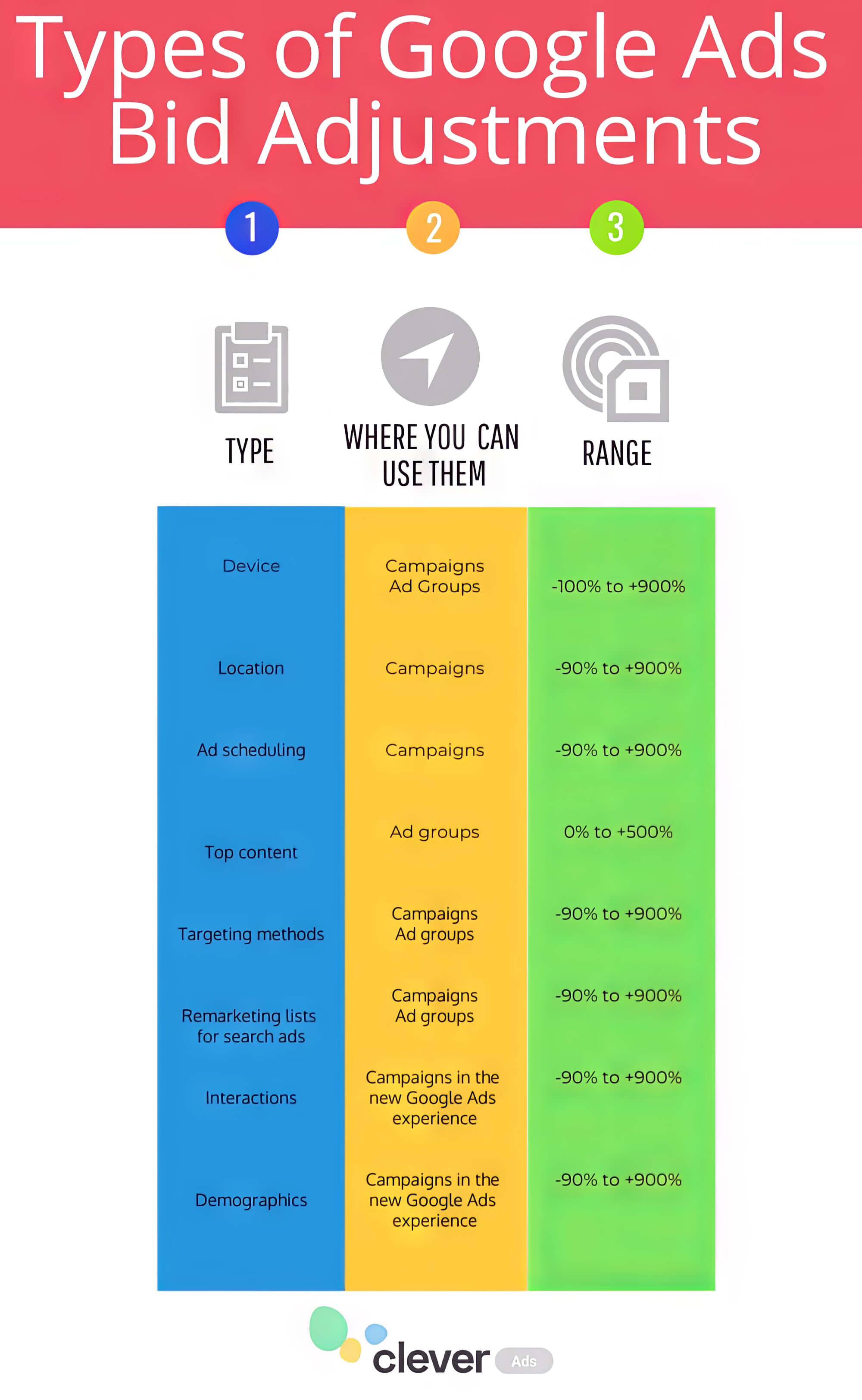
D. Quality Score
Businesses that want to improve the position of their ads without increasing ad spend can monitor the quality score. When the quality score for a keyword is high, you must pay less for an ad position.
E. Small Incremental Changes
Because internet traffic isn’t linear and constantly changing, you must tweak the bid strategies in small increments to keep up with the market. Once you spot changes in the conversions and clicks for specific keywords, it becomes easier to make the changes.
F. Optimising The Bidding Strategy
Apart from automated bidding strategies, other tools help you choose the right bid. First, ensure the Google Ads bid strategy campaign runs for several weeks before using the following tools for personalised recommendations.
- First-page bid estimates
- Bid simulator
- Recommendations page
Most businesses will find all the relevant information on the recommendations page, like how to get more traffic, improve CPC bids, enhance performance and increase the Ad rank. You will also know how much you must invest in ranking your ads toward the top of the first page for Google Search Results.
Besides that, with the bid simulator, you can get answers to nagging questions. For instance, by increasing the target cost, businesses will know what target impression share they will get.
Ad Bidding Best Practices
To achieve the best return on your ad spend, it’s crucial to stick to top-notch bidding practices. Here’s what you should consider.
1. Timing
Even with automated bid strategies, timing is crucial for your ads campaign to be successful. You take your time deciding because monitoring a campaign over several weeks will give different results than when it was first launched.
To analyse the bidding strategy, it would be best to get at least 1,000 impressions and a high number of clicks, so run it for more than three weeks. This is true for even low-volume campaigns, as they want to get as many conversions as possible.
But for high-volume campaigns, you will need thousands of more impressions. The good thing is that testing for three weeks or months allows you to calculate the following:
- How much are you likely to get paid
- People might convert less at certain times during the month
- How people are responding to the purchase process
- When consumers come back
2. Estimated Metrics
Several smart bidding strategies rely on estimated metrics to know which Google Ads bids to choose.
- Estimated first position bid
- Estimated first-page bid
As the name suggests, the first bidding strategy is for ranking on top of the first page, while the second technique is just for a position on the first page. Using either strategy will help you decide what to bid to secure those positions.
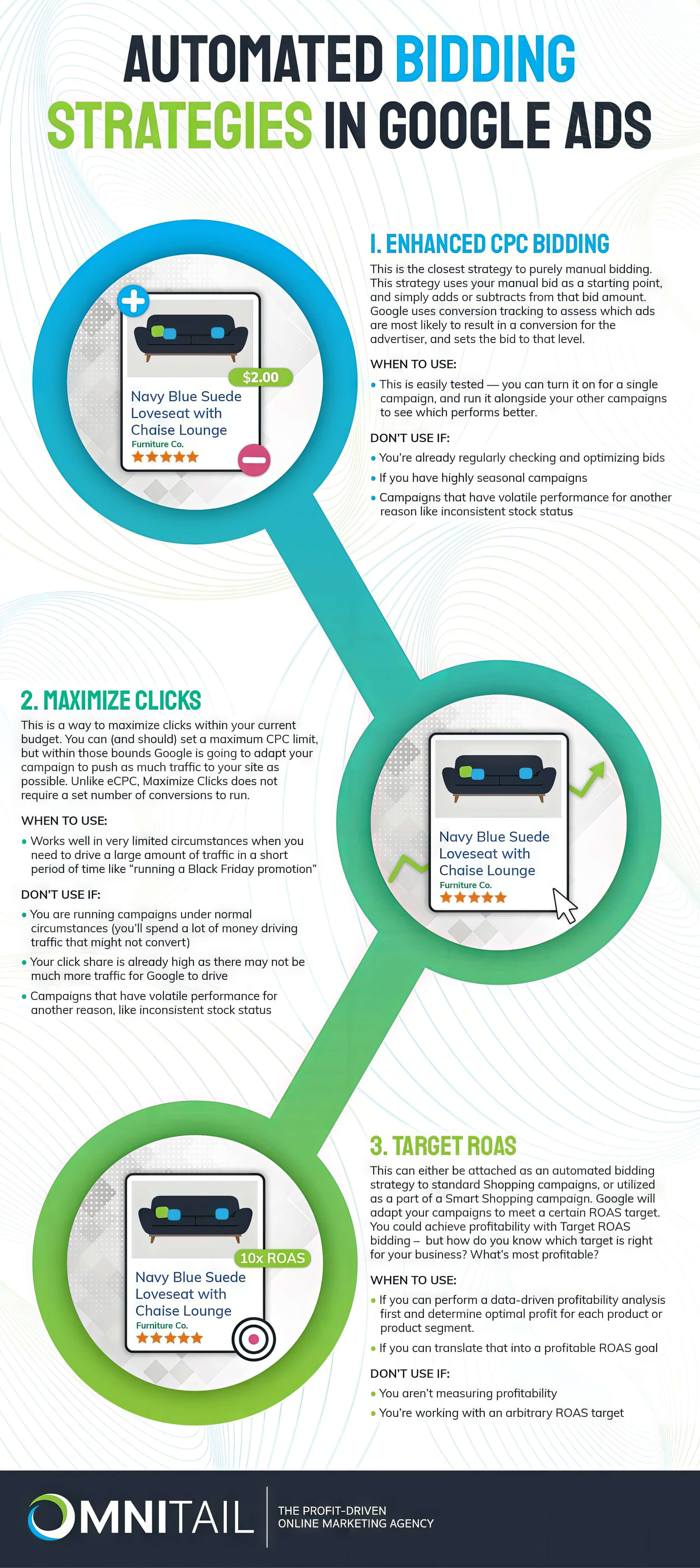
While bidding, ensure you spend less than 20% of the daily budget for greater flexibility and to use the money wisely. Moreover, you can test other bid strategies against the Key Performance Indicators to determine the ideal bid setting.
Some of these ads bidding strategies are:
- Target CPA
- Traffic optimisation
- Manual bidding strategy
- Conversion optimisation
3. Target Impression Share
We spoke about the target impression share earlier, but what does it mean? Impression share is the number of times the ad is visible to people searching on Google. When the impression share is 100%, your ad will be visible 100% of the time for that keyword search.
Any keyword bids must show up at least 90% of the time for high impression share. The bottom line is that the low-cost per conversion keywords with high optimisation should appear often.
Ad Bidding Tips
Here are some practical Google Ads bidding tips when using bidding strategies like Maximise Conversions:
1. Adjust Bids
Making bid adjustments when necessary is essential, especially depending on the performance. If you find that a certain device is driving conversions at low costs, get a 20% positive bid adjustment for that device. You can view how individual devices perform by segregating the campaigns and ad groups.
2. Bidding Strategy Rules
Based on the business parameters, you can use Google Ads to create bidding rules to enable, pause, manage budgets, and change bids. Setting the rules at the keyword, campaign, and ad group level to Maximise Conversion Value bidding is easy.
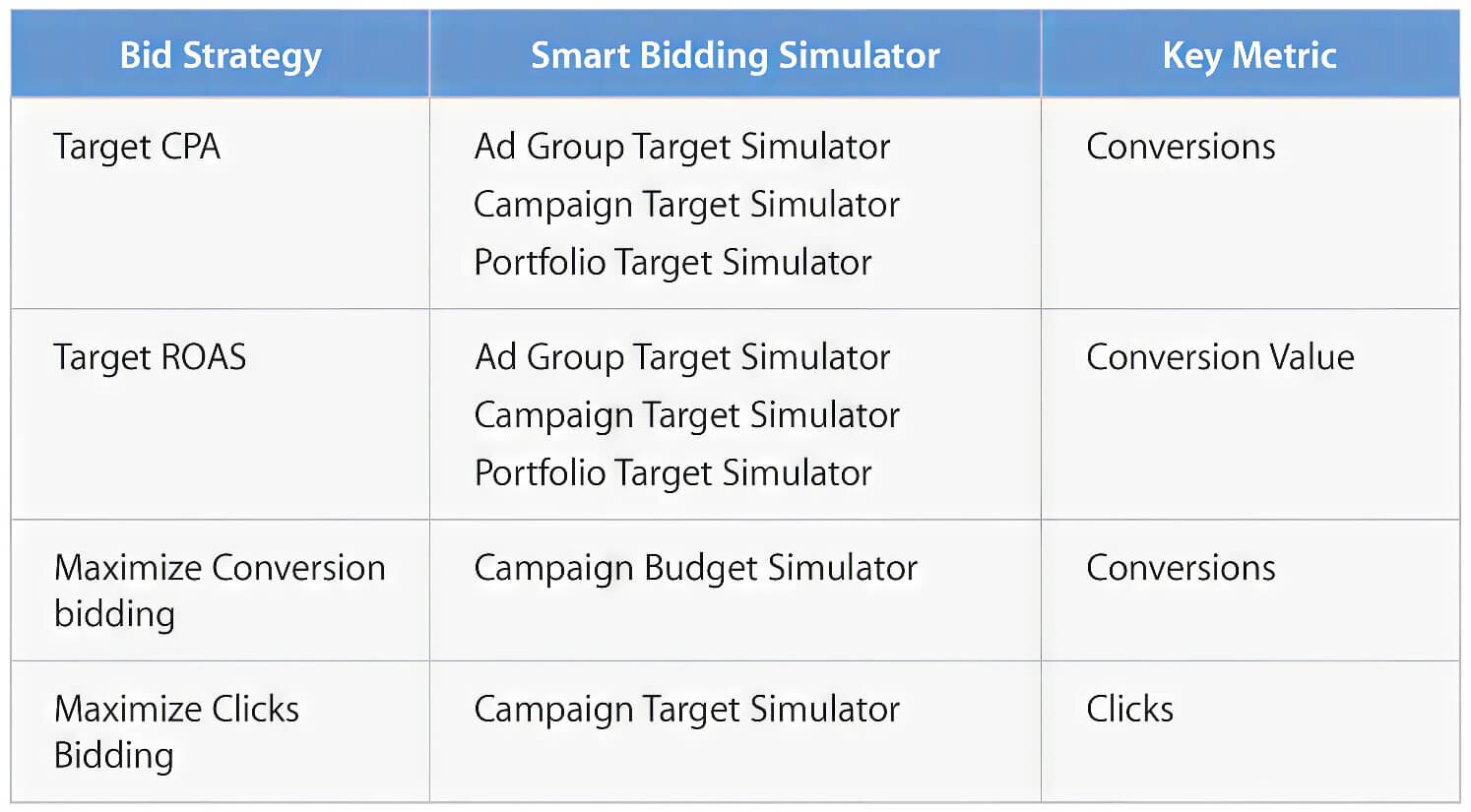
3. Bid Strategy Scripts
As part of its automated bidding strategy, Google Ads automatically sets the bid scripts depending on the available metrics and time. The best part about scripts is that you have scope for greater customisation and can manage the bids based on weather patterns. This isn’t possible with the rules set for normal Google Ads.
4. Bid For Sales
While some businesses prioritise conversion value, it’s wise to focus on bidding for sales and tracking effective keywords. This approach ensures you set a solid cost-per-conversion goal and assess PPC traffic based on performance.
Google Ad Bidding System
The Google Ads platform has an ads auction process whereby you can bid for ads in multiple ways, provided you have prioritised what’s most important in the business—clicks, conversions, impressions, views, etc. Once you have a clear goal for Google Ads, deciding on Google Ads bidding strategies will become easier.
When there’s an available ad space on a search page, news site, or blog, Google Ads initiates an auction. The outcome decides which ads appear there, and your bidding method is your ticket into that auction.
So, what aspects should you focus on when developing an effective bid strategy? We have narrowed down four factors.
1. Target Impression Share Strategy
Target impression share bidding is ideal for businesses looking to enhance their brand visibility by targeting the search network. Best of all, Google Ads will use automated bid strategies to determine the bids and help achieve your goals.
You prefer an impression share target of 50% on the top of the page. This strategy ensures your ads will appear in the top 50% of the total possible times. Similarly, if you target the display network, you can pay every time the ad is visible rather than for the number of clicks.
Tip: Manual CPC bidding functions in much the same way.
2. Views
Views are essential for video ads, and to calculate the target return, we recommend CPV bidding. This smart bidding strategy lets you determine if consumers engage with the video ads when they leave and on what device they watch the videos.
You can pay for video interactions through CPV bidding, like views, cards, Calls-To-Action overlays, and companion banners.
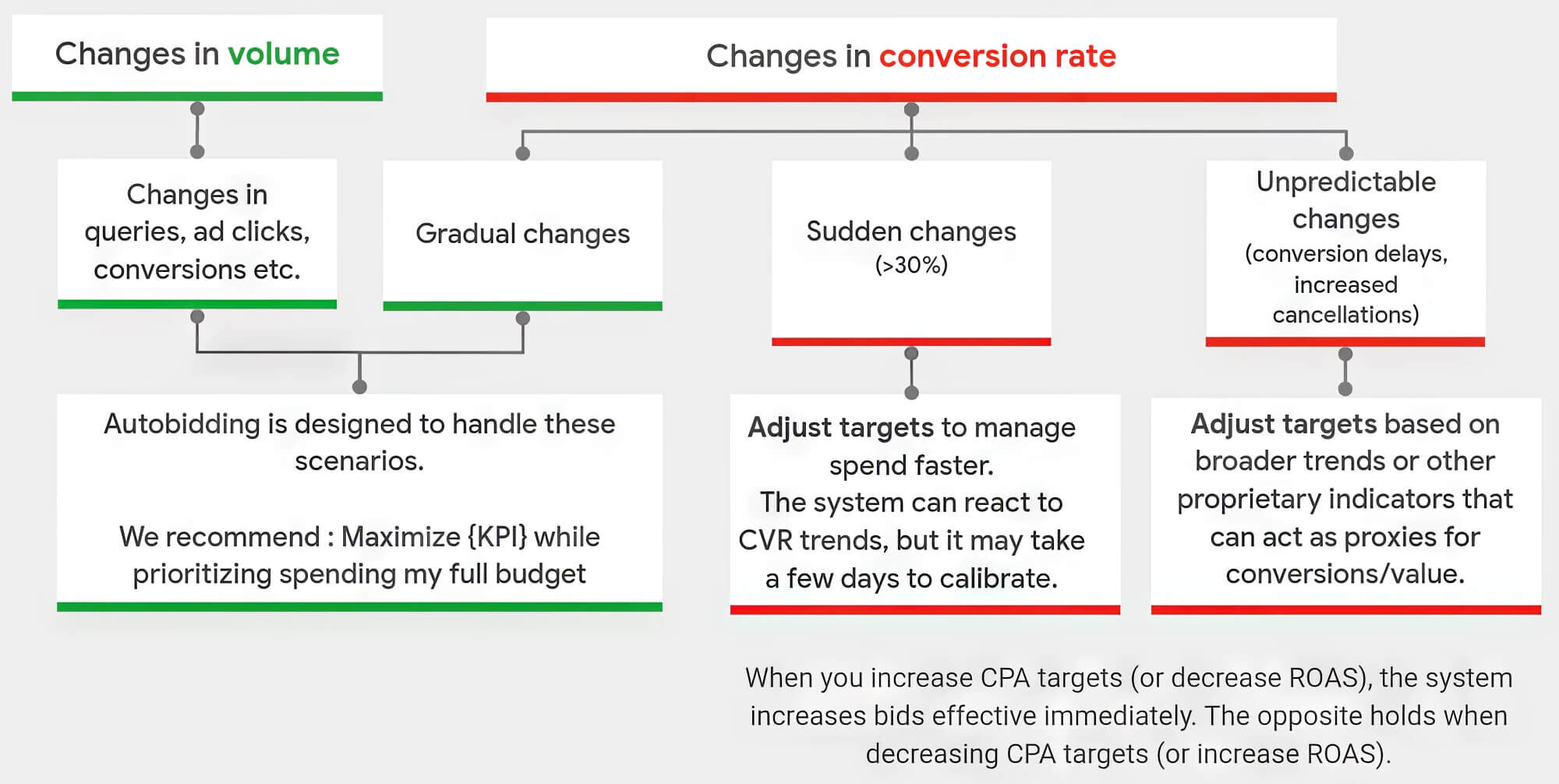
3. Clicks
When you want people to visit the website, prioritise the clicks for display and search ads. Also, maximum CPC bids ensure you pay only when people visit your site by clicking on the ads. We suggest a healthy balance of broad-range and direct-hit keywords to get the desired target return on ad campaigns.
4. Conversions
Conversions for display and search ads call for an advanced bid strategy, whereby you decide the amount you want to pay for the target CPA or conversion. Often known as an acquisition, conversions are particular actions you want for the website.
For some businesses, it’s a sale, while others prefer email signup, etc. Intermediate and advanced Google Ads users must enable conversion tracking, following which this fully automated bidding strategy will set the bid to get maximum conversions at the target CPA.
Ad Bidding Software
If you are running multiple campaigns on the Google Ads account, it’s essential to know about the right ad bidding software you can use:
- SEMrush
- Adzooma
- Answer The Public
- SpyFu
- ClickCease
- PPC Protect
- Google Ads Editor
- Dashword
- Google Analytics
- Keyword Planner
Many of these are free software, with Google Analytics, SEMrush, Google Ads Editor, and Keyword Planner being the most well-known. Google Analytics is particularly useful for gathering demographic data, conversion tracking, and custom reporting.
When used with the Keyword Planner, this free tool effectively generates more user engagement by suggesting the right keywords and planning a successful bidding strategy.
Ad Bidding Algorithm
The Google Ads bidding algorithm keeps learning and changing to increase conversion values through different Google Ads. Here, we have highlighted some important aspects of the algorithm.
1. Adapting To Changes
Google Ads uses a smart bidding strategy to update the bidding algorithm and ensure it aligns with shifts in performance. As the business continues growing, it’s natural to tweak the campaign. More often than not, Google Ads performance changes are driven by internal factors like:
- Ad spend
- Testing a new ad copy
- Using new keywords
- Rethinking the landing pages
2. Updating The Bidding Strategy For Success
To update the bidding strategies and see results faster, you must have a deep repertoire of conversion data. We recommend measuring all the conversion actions of the bid strategy to determine which aspects are most valuable to the business.
With a smart ads bidding strategy, you can optimise the conversions with tools like Maximise Conversions and Target CPA. This can deliver even better results and increase ROI, thanks to Target ROAS and Maximise Conversion value.
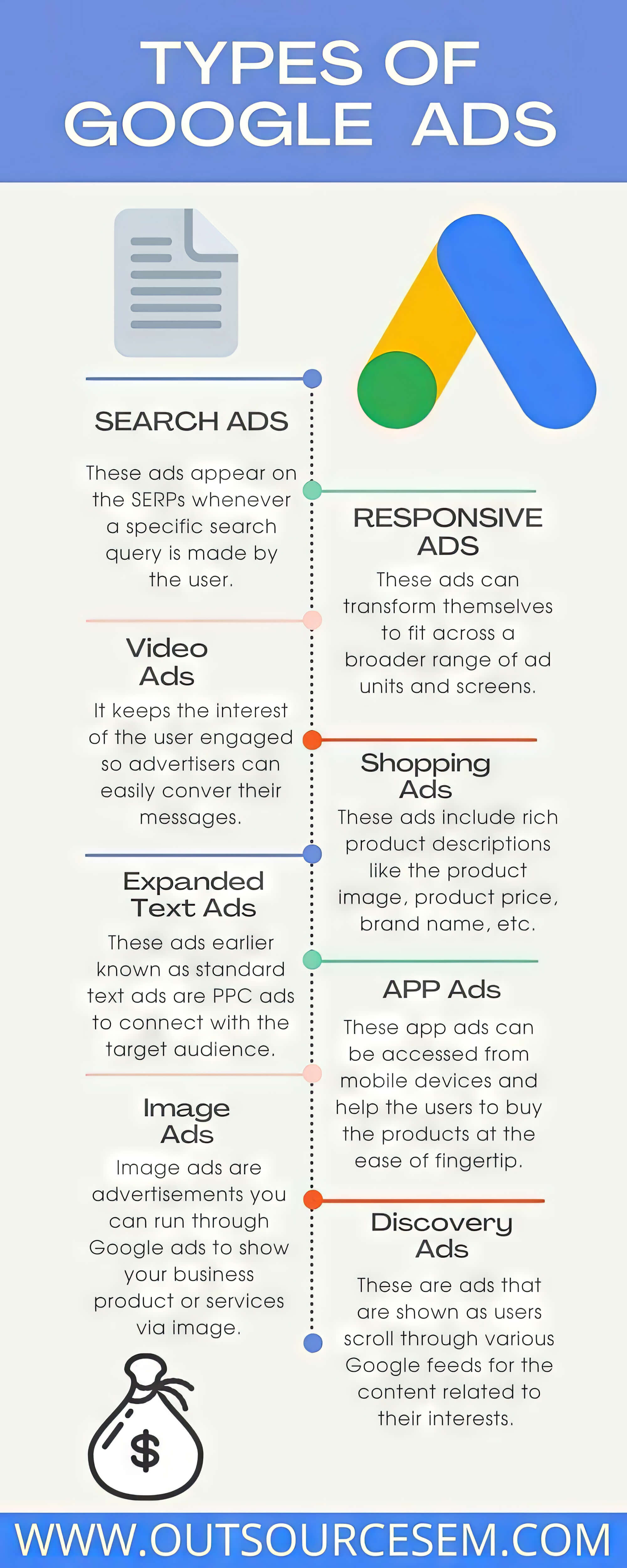
3. Data Recency And Conversion Delays
The bidding strategy algorithm considers the latest data and the duration of the conversion cycle, which is called adaptive historical weighting. That said, Google Ads’ bidding strategies, which function only on the principle of recent performance, may not be accurate.
You must factor in conversion delays, which occur when users take longer to click. Hence, Google Ads uses automated bidding strategies to prevent overreactions, reductions, or manual bid strategies.
4. Changing Targets To Meet Business Goals
Adjust the targets by considering the business objectives, budget, new performance goals and market conditions. You must also change the ROAS and target CPA whenever needed; that’s where intelligent bid strategy proves useful by automatically adjusting the bids.
Smart ads bidding strategy simulators come in handy by highlighting the relation between budget and targets and how this affects conversion, cost, or conversion value.
Ad Bidding Strategies For Small Businesses
To increase the success rate of your Google Ads, here are some Google Ads bidding strategies you must know about.
1. Target Cost Per Acquisition
To optimise conversions, most businesses use a target CPA bidding strategy to increase conversions at a particular acquisition cost. CPA is the amount of money you want to spend to acquire a single customer, and Google Ads automatically determines the bids for each campaign depending on the CPA.
2. Target Return On Ad Spend
Once you determine how much return you expect from the ad spend, Google Ads uses the Target ROAS bid strategy and Maximise Conversion Value. It is calculated as a percentage by dividing the total sales by ad spend and multiplying the result by 100.
3. Maximise Conversions
This is one of the easiest Google Ads bidding strategies, as Google Ads automatically runs the bidding strategy to get the most conversions based on your daily budget. You can check the ROI to see if the bidding strategy resulted in profits, but remember to set a reasonable budget because Google Ads will not spend it otherwise.
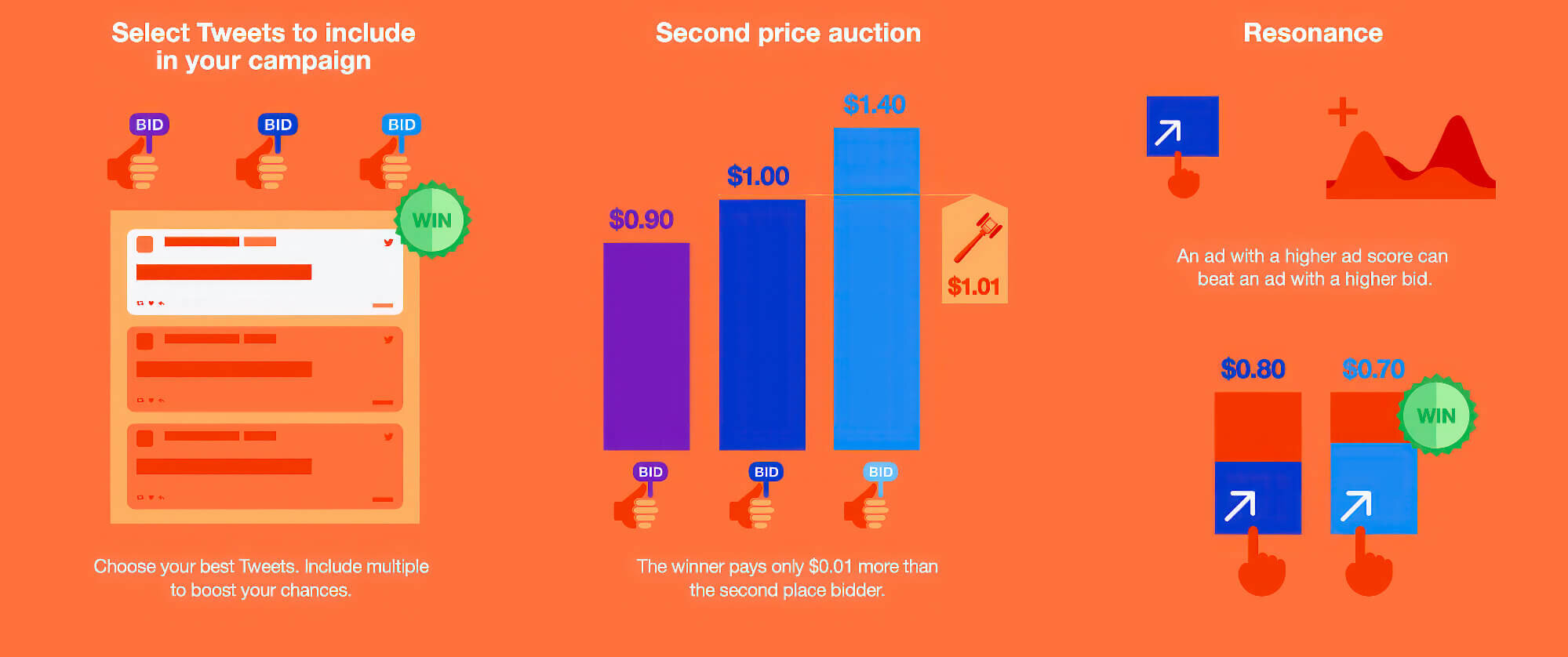
4. Maximise Conversion Value
It’s one of the newest Google Ads bidding strategies and works much like Target ROAS, whereby Google Ads tries to deliver a high return on ad spend. Moreover, there’s no need to fix a target ROI; you can just let the algorithm deliver maximum profits.
5. Manual Bids
Manual CPC bidding ensures you have greater control over the bidding strategy, but it also means you must make the adjustments manually and spend more time handling costs. This bid strategy is only suitable for people well-versed in Google Ads; otherwise, opt for one of the Google Ads automated strategies.
6. Maximise Clicks
Among Google Ads’ automated bidding strategies, Maximise Clicks is one of the most popular as it tries to generate higher clicks based on your daily budget. However, there are better bid strategies for sales since they need to consider the relevance or quality of the strategy.
FAQs
1. What are the different types of Google Ad bidding strategies?
The different types of bidding strategies for Google Ads include:
- Target CPA
- Maximise Conversions bidding strategy
- Target ROAS bidding strategy
- Manual CPC Bidding
- Maximise Conversion Value
- Maximise Clicks
- Enhanced Cost Per Click
- Cost Per Thousand Impressions
- Cost Per Viewable Thousand Impressions
- Target Impression Share Bidding
- Cost Per View
2. What is the ad bidding process?
If you are wondering how ad bidding works, it is based on auction time bidding, whenever an ad space is available. When people ask how to win ad auctions, they must know about vacant spots on blog posts, search engine results pages, other websites, etc.
You bid to put your ad in the available space, and the ad auction process determines which ads show on top of the page. If you search for “Google Ad bidding explained”, you will see that an important consideration is deciding the purpose of the ads to make the most of the auction.
In most cases, you must focus on the following for ad bidding optimisation -
- Impressions
- Views
- Clicks
- Conversions
3. What is bid management?
Whether you have a portfolio bid strategy or opt for any other Google Ads campaign, the basic bid management process remains the same. Bid management is lowering or raising keyword bids to achieve the desired results from the Google Ads budget.
There are different types of bid strategies, but they all have the same purpose of determining where and in what position the ad is visible to consumers. You can further calculate how much you’re paying per click.
However, since management is challenging even for seasoned businesses, tools like Keyword Planner and Google Analytics can help.
4. What is an ad auction, and how does it work?
Ad auction is a part of the Google Ads campaign that determines whether an ad is eligible for a search, if it will show on the page, and in what position. When anyone conducts a Google search, the Google Ads system finds all relevant ads by matching them to the keywords.
The algorithm then filters ads that aren’t eligible, such as those with a different target search page location or those reporting a privacy violation. Among the remaining ads, the rank is calculated based on the bid strategy, Ad Rank thresholds, ad quality, the purpose of the person’s search, ad formats, and the impact of the extensions.
With more relevant keywords, the chances of ranking at the top increase.
5. What is cost-per-click bidding, and how does it work?
Cost-per-click is a Google Ads bidding strategy where you pay for each click on the ads. For this automated bidding strategy to be successful, you must fix a maximum cost-per-click bid; in other words, it’s the maximum you are willing to pay when someone clicks on the ad.
The maximum CPC is often less than the actual CPC because, at times, you have to pay less for clicks on the ad. But it will never be more than the maximum CPC bid amount.
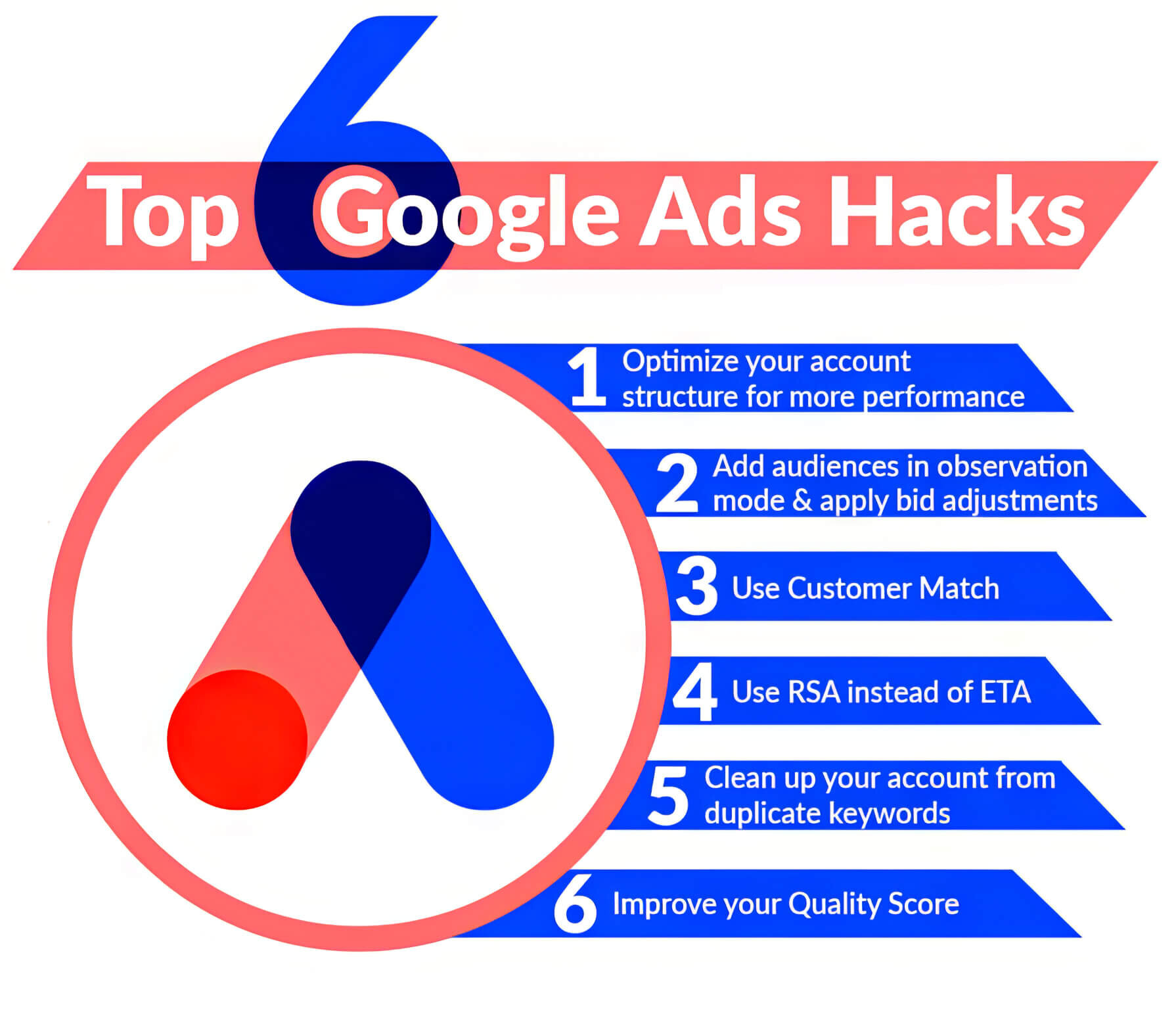
6. What is automated bidding, and how does it work?
A Google Ads automated bidding strategy automatically sets bids depending on the possibility of the ad resulting in a conversion or click. Various automated bid strategies help you reach the desired business objectives.
The best part is that you won’t have to use guesswork or manually update the bids depending on keywords or ad groups. Google Ads algorithm sets the bids and ensures you get maximum clicks, conversions, visibility and a higher conversion value.
Also, most smart bidding strategies fall under automated bidding, conversion-based or value-based, based on the available information during the auction.
7. What is target CPA bidding, and how does it work?
Another popular smart bidding strategy is target CPA bidding, as Google Ads sets bids to get as many conversions as possible. With a target CPA, it’s important to determine the average cost you are willing to pay for every conversion.
For the best results, we suggest setting up conversion tracking before you get started with the target CPA. The algorithm uses historical information to automatically find the right bid for your ad every time it’s eligible to appear.
It helps understand the contextual signals during the auction, but note specific conversions might cost you more or less. However, the average cost will be equal to your target CPA.
8. What is Maximise Conversions bidding, and how does it work?
This automated bidding strategy sets bids for maximum conversions, thereby spending your budget. The algorithm features advanced machine learning to optimise and adjust bids while offering auction-time bidding capabilities for every ad.
Moreover, Maximise Conversions uses real-time data to manage the bids, but the downside is that it tries to spend the entirety of the daily budget amount. So, fix a daily budget after considerable thought because if you run short on cash, this automated bidding strategy may not be suitable.
Switching to target CPA, CPI, or ROAS is particularly important when you have a business ROI.
9. What is manual bidding, and how does it work?
Manual bidding allows you to set the maximum cost when consumers click on the ads. This method promises a good ROI because you pay only when a viewer clicks on the ad.
You can choose the maximum CPC depending on the business and the value of a sale. Initially, Google Ads sets a default CPC value that you can change to see how many clicks the ads get and how it impacts the business.
However, since digital marketing and online traffic constantly change, it would be best to reevaluate the manual bidding strategy regularly.
10. What is enhanced cost per click, and how does it work?
You can use an enhanced cost-per-click bid strategy to Maximise Conversion bidding or increase the conversion value. It combines Google’s automated bid strategies with manual biddings, such as target ROAS or target CPA.
It increases the manual bid whenever the chances of making a sale or converting are high. Similarly, it lowers the bid amount when there are fewer chances of conversion.
In certain instances, ECPC is used with third-party bidding strategies to help you enjoy certain aspects of smart bidding. However, note that it operates differently for shopping campaigns, and only search campaigns are suitable when using ECPC for conversion value.
Choosing The Right Bidding Strategy
There are other forms of bid strategy, like portfolio bidding strategy, whereby you can club together Ads, multiple campaigns and keywords with just a few clicks. Understanding Google Ads Quality Score is crucial when optimizing your bidding approach, as it directly impacts your cost-per-click and ad position.
The easiest way to determine the right bidding strategy for your needs is to evaluate the business using a professional management agency. Ask yourself what you hope to achieve through the Google Ads campaign, making choosing a bid strategy relevant to the business easier. You must also consider the budget, as investing in a high-end bid strategy would be wiser when you are short of cash.
Most importantly, research all the campaigns and update the strategy to keep up with market trends. But if you find it challenging to manage everything, it would be best to hire a professional company that knows the ins and outs of running a successful Google Ads campaign.

